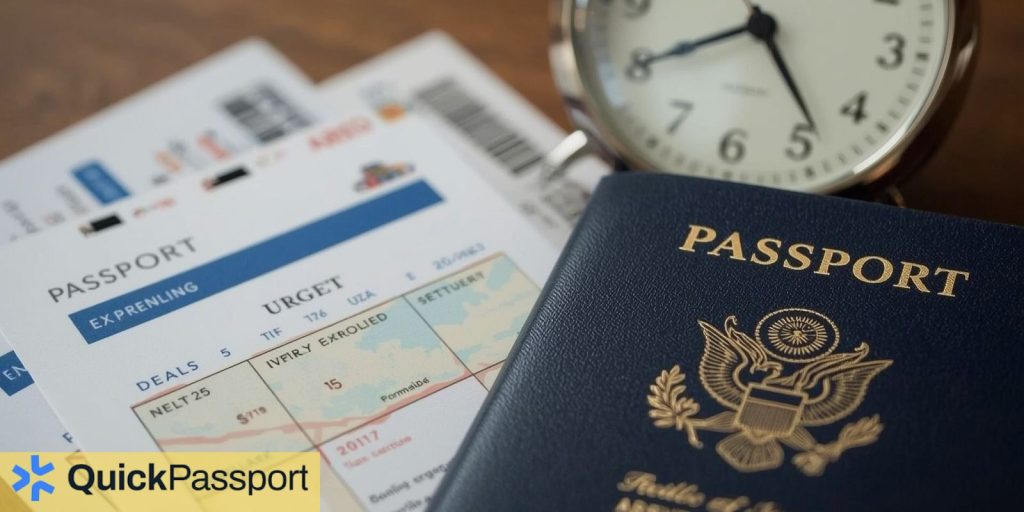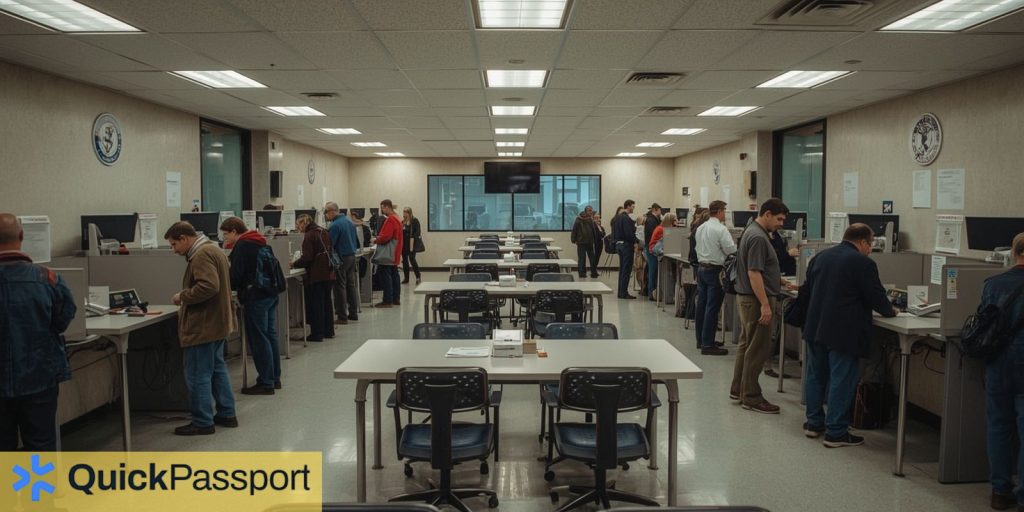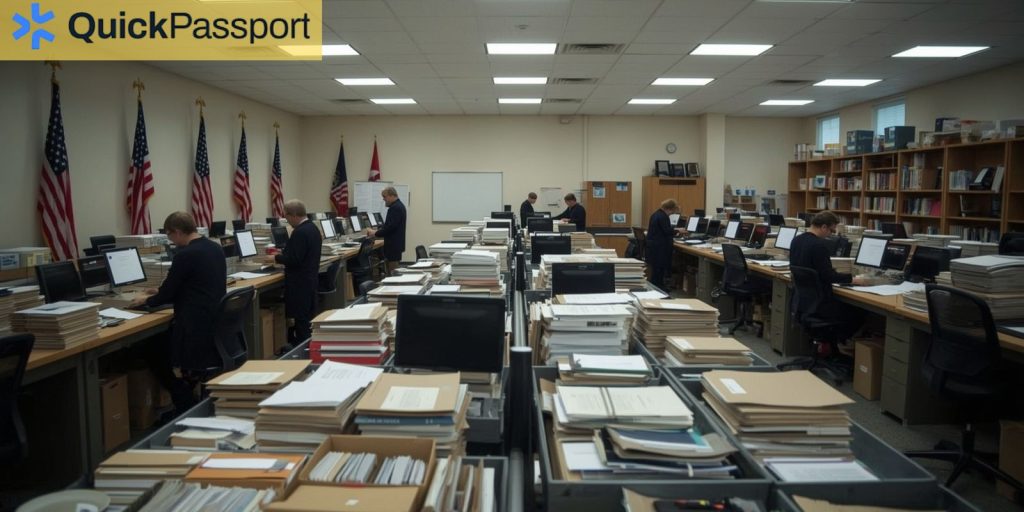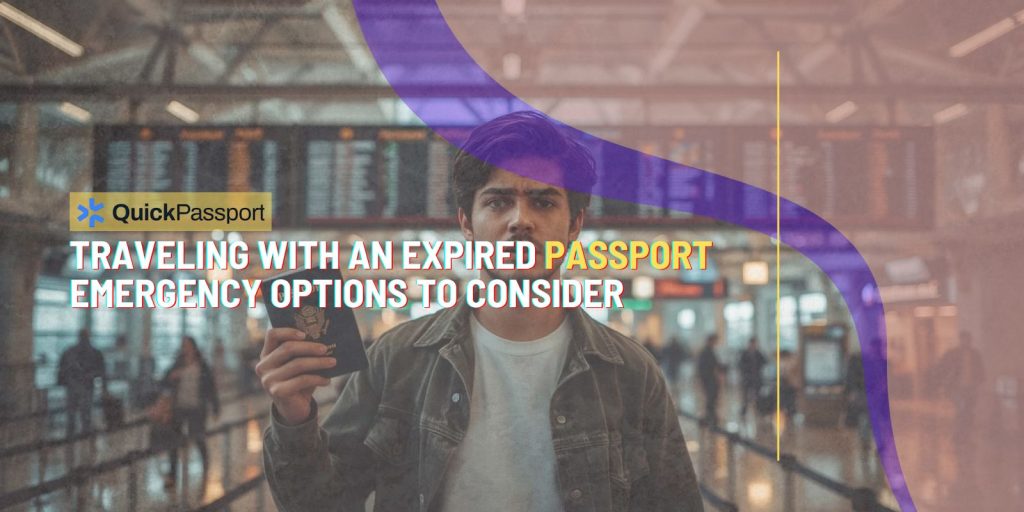Discovering that your passport has expired just days or hours before your planned international trip can be one of the most stressful travel experiences imaginable. Whether you’re heading to a crucial business meeting, a long-awaited vacation, or responding to a family emergency abroad, an expired passport doesn’t have to mean the end of your travel plans. Understanding your emergency options and acting quickly can often save your trip, though it requires immediate action and potentially additional costs.
The reality is that millions of travelers face this predicament each year, and the travel industry has developed several mechanisms to help resolve these urgent situations. From expedited passport services to emergency travel documents, there are multiple pathways to getting back on track with your international travel plans. However, the success of these options largely depends on how much time you have before departure, your destination requirements, and your ability to navigate the bureaucratic processes quickly.
Traveling with an expired passport emergency options vary significantly based on your specific circumstances, including whether you’re a U.S. citizen traveling domestically versus internationally, the countries you plan to visit, and the urgency of your travel needs. Some solutions can get you traveling within 24-48 hours, while others may require several days to process. The key is understanding which option best fits your timeline and travel requirements.
Modern passport services have evolved to accommodate emergency situations, with specialized agencies and expedited government services designed specifically for travelers facing time-sensitive departures. These services often come with premium pricing, but they can mean the difference between missing your trip entirely and departing on schedule. Additionally, some destinations and travel scenarios offer alternative documentation options that can serve as temporary solutions while you resolve your passport situation.
The most important factor in successfully resolving an expired passport emergency is taking immediate action. Every hour counts when you’re working within tight timeframes, and understanding your options before you need them can save precious time during a crisis. From same-day passport services in major cities to emergency travel authorizations, the solutions available today are more comprehensive and accessible than ever before.
Key Takeaways
- Same-Day Emergency Passport Services: Available in major cities through specialized agencies and some government offices, these services can process passport renewals or new applications within 24-48 hours for urgent travel needs, typically requiring proof of emergency travel and additional fees.
- Emergency Travel Documents: U.S. embassies and consulates abroad can issue emergency passports or temporary travel documents for citizens who discover their passport issues while already traveling, providing a pathway home or to continue urgent travel.
- Expedited Government Services: The U.S. State Department offers expedited processing that can reduce standard passport processing times from weeks to days, available through both mail services and in-person appointments at passport agencies.
- Private Expediting Services: Third-party companies specialize in navigating government processes quickly, often providing hand-carry services to passport offices and same-day processing for urgent applications, though at premium prices.
- Alternative Documentation Options: For certain types of travel, such as closed-loop cruises or travel to specific neighboring countries, alternative documents like enhanced driver’s licenses or passport cards may be acceptable substitutes.
- Destination-Specific Requirements: Some countries offer visa-on-arrival or emergency entry provisions for travelers with expired passports in genuine emergency situations, particularly for medical or family emergencies.
- Timeline-Based Strategy Selection: The best option depends entirely on your departure timeline, with different solutions optimal for same-day, next-day, or week-ahead travel needs, requiring careful assessment of available time versus processing capabilities.
Understanding Passport Expiration Rules and Emergency Scenarios
Before exploring emergency options, it’s crucial to understand how passport expiration rules work and what constitutes a genuine travel emergency. Most countries require that your passport be valid for at least six months beyond your planned departure date, meaning that even a passport that hasn’t technically expired yet might not be acceptable for international travel. This “six-month rule” catches many travelers off guard and creates emergency situations even when the passport appears valid.

Emergency travel scenarios typically fall into several categories: medical emergencies requiring immediate international travel, death or serious illness of family members abroad, urgent business travel that cannot be postponed, and previously planned trips where passport expiration was overlooked. Each scenario may qualify for different types of expedited services and emergency processing options. Government agencies and private services often prioritize genuine emergencies, particularly those involving medical situations or family crises.
The definition of “emergency” can vary between different service providers and government agencies. Generally, you’ll need to provide documentation proving the urgent nature of your travel, such as medical records, death certificates, business letters, or airline tickets showing imminent departure. Some services require that your travel be within 72 hours to qualify for emergency processing, while others may accommodate travel planned within two weeks.
Understanding the distinction between passport renewal and new passport applications is also critical in emergency situations. If your previous passport was issued when you were over 16 and less than 15 years ago, you typically qualify for renewal, which can be processed more quickly than new applications. However, if your passport was significantly damaged, lost, or issued when you were under 16, you’ll need to apply for a new passport, which may require additional documentation and processing time.
Same-Day and 24-Hour Emergency Passport Services
When you need a passport within 24-48 hours, same-day emergency services represent your fastest option, though they require specific circumstances and immediate action. These services are primarily available in major metropolitan areas and require proof of emergency travel, typically defined as departure within 72 hours. The process involves securing an emergency appointment at a regional passport agency or working with a private expediting service that can hand-carry your application through the government process.
Regional passport agencies in cities like Seattle, Los Angeles, New York, and Chicago offer life-or-death emergency appointments for travelers who can demonstrate urgent need. These appointments must be scheduled by calling the National Passport Information Center, and you’ll need to provide proof of your emergency travel, such as airline tickets, medical documentation, or official letters explaining the urgency. The appointment system is designed for genuine emergencies, and availability can be limited, especially during peak travel seasons.
Private expediting services like QuickPassport – Seattle specialize in navigating these emergency processes and often have established relationships with passport agencies that can facilitate faster processing. These services typically charge premium fees ranging from $200 to $500 or more, depending on the urgency and complexity of your situation. However, they can often secure appointments and processing that might be difficult for individuals to obtain independently.
The same-day process typically requires arriving at the passport office early in the morning with all required documentation, including your application, proof of citizenship, identification, passport photos, and evidence of emergency travel. Processing can take several hours, and you may need to wait at the facility or return later in the day to collect your passport. Some services can complete the entire process within 4-6 hours, while others may require overnight processing.
Success with same-day services depends heavily on having all documentation properly prepared and meeting the strict emergency criteria. Missing documents or incomplete applications can result in delays that defeat the purpose of emergency processing. Working with experienced expediting services can help ensure that your application is properly prepared and submitted, maximizing your chances of receiving your passport within your required timeframe.
Expedited Government Services and Processing Options
When you have more than 48 hours but still need faster-than-normal processing, expedited government services offer a more accessible and often more affordable option than same-day emergency services. The U.S. State Department provides expedited processing that can reduce standard processing times from 6-8 weeks to 2-3 weeks for routine applications, or from 2-3 weeks to 1 week for applications that already qualify for expedited service.

Expedited processing is available for both passport renewals and new applications, though renewals typically process faster due to simplified verification requirements. The service requires an additional fee beyond the standard passport application cost, and you must clearly mark your application as expedited and include the additional payment. For mail-in applications, expedited service includes faster return shipping to ensure you receive your passport as quickly as possible.
Regional passport agencies also offer expedited in-person services for travelers who can demonstrate travel within two weeks or who need visas within four weeks. These appointments are more readily available than emergency same-day appointments and can often be scheduled with several days’ notice. The in-person process typically allows for faster processing and immediate resolution of any documentation issues that might delay mail-in applications.
For travelers with slightly more flexibility, expedited services can be combined with premium shipping options to further reduce processing times. Express mail services and overnight delivery can save additional days in both directions, ensuring that your application reaches the processing center quickly and that your completed passport returns to you without delay. These shipping upgrades are relatively inexpensive compared to emergency processing fees and can make a significant difference in tight timelines.
The key to success with expedited government services is accurate timeline planning and proper application preparation. Understanding exactly how long each step of the process takes, including shipping times, processing periods, and potential delays, allows you to determine whether expedited services will meet your travel timeline. Starting the process as early as possible, even if your travel is still several weeks away, provides buffer time for unexpected delays or complications.
Private Expediting Services and Third-Party Solutions
Private passport expediting services have emerged as a crucial resource for travelers facing tight timelines, offering specialized expertise and established relationships with government agencies that can significantly accelerate the passport application process. These companies, such as QuickPassport – Seattle, focus exclusively on navigating the complex requirements and bureaucratic processes involved in emergency passport situations, often achieving results that would be difficult or impossible for individual travelers to accomplish independently.
The primary advantage of private expediting services lies in their experience and established procedures for handling urgent passport applications. These companies maintain relationships with regional passport agencies, understand the specific requirements for different types of emergency processing, and can often secure appointments or processing slots that might not be available to the general public. Their expertise in preparing applications correctly the first time eliminates many of the delays that can occur when documentation is incomplete or improperly formatted.
Most reputable expediting services offer multiple service levels based on your timeline and budget constraints. Standard expedited service might deliver your passport within 5-7 business days, while premium emergency services can often achieve 24-48 hour turnaround times. The most urgent services typically involve hand-carrying your application to passport agencies and personally shepherding it through the entire process, ensuring that no time is lost due to mail delays or processing backlogs.
Cost considerations for private expediting services vary widely based on the urgency of your request and the complexity of your situation. Basic expedited services might add $100-200 to your passport costs, while emergency same-day services can cost $500 or more. However, these costs are often justified when compared to the potential losses from missing important travel, such as non-refundable airline tickets, hotel reservations, or business opportunities.
When selecting a private expediting service, it’s important to verify their credentials and track record. Legitimate services should be able to provide references, demonstrate their relationship with government agencies, and offer clear guarantees about their processing times. They should also be transparent about their fees and what services are included, helping you understand exactly what you’re paying for and what results you can expect within your timeline.
Alternative Documentation and Emergency Travel Options
In certain travel scenarios, alternative documentation options can provide viable solutions for travelers with expired passports, particularly for specific types of trips or destinations. Understanding these alternatives can open up additional possibilities for urgent travel while you work on resolving your passport situation through traditional channels. However, these options are highly dependent on your specific travel plans and destination requirements.

For travelers planning closed-loop cruises that depart and return to the same U.S. port, alternative documentation such as certified birth certificates combined with government-issued photo identification may be acceptable. This option can be particularly valuable for cruise travelers who discover passport issues close to their departure date, as obtaining certified copies of birth certificates is typically much faster than passport processing. However, this option is limited to specific cruise itineraries and may not be accepted for all cruise lines or destinations.
Enhanced Driver’s Licenses (EDL) and passport cards represent another category of alternative documentation that can be useful for certain types of travel. These documents are acceptable for land and sea travel to Canada, Mexico, and some Caribbean destinations, though they cannot be used for air travel to international destinations. For travelers with expired passports who need to reach these destinations by land or sea, an EDL or passport card might provide a faster solution than full passport replacement.
Some countries offer emergency entry provisions for travelers facing genuine emergencies, particularly medical situations or family crises. These provisions typically require coordination with the destination country’s embassy or consulate and may involve special documentation or emergency visas. While not common, these options can be valuable for travelers who absolutely must reach their destination and cannot wait for standard passport processing.
Emergency travel documents issued by U.S. embassies and consulates abroad represent another important alternative for travelers who discover passport issues while already traveling. These documents are designed to facilitate return travel to the United States or continuation of urgent travel, though they have limited validity and may not be accepted for all destinations. Understanding how to access these services through U.S. diplomatic facilities can be crucial for travelers facing passport emergencies while abroad.
Frequently Asked Questions
Can I travel domestically within the United States with an expired passport?
For domestic travel within the United States, an expired passport can still serve as acceptable identification for TSA security checkpoints, as long as it expired within the past year. However, airlines and TSA recommend carrying additional forms of identification, such as a driver’s license, to avoid potential complications during security screening.
How much does emergency passport processing typically cost?
Emergency passport processing costs vary significantly based on the service level and timeline required. Government expedited fees add $60 to standard passport costs, while private expediting services can range from $200 for standard expedited service to $500 or more for same-day emergency processing, plus all standard government fees.
What documentation do I need to prove emergency travel for same-day passport services?
Emergency travel documentation typically includes airline tickets showing departure within 72 hours, medical records for health emergencies, death certificates for family emergencies, or official business letters explaining urgent travel needs. The documentation must clearly demonstrate the time-sensitive nature of your travel requirements.
Can I get a passport on weekends or holidays for emergency travel?
Standard government passport agencies are typically closed on weekends and holidays, but some private expediting services maintain emergency contact systems for urgent weekend processing. QuickPassport – Seattle and similar services may be able to arrange special processing for genuine emergencies, though this typically involves premium pricing and limited availability.
What happens if my passport expires while I’m traveling abroad?
If your passport expires while traveling abroad, contact the nearest U.S. embassy or consulate immediately. They can issue emergency travel documents or temporary passports to facilitate your return to the United States. These documents have limited validity but are designed specifically for emergency travel situations.
How far in advance should I renew my passport to avoid emergency situations?
Passport experts recommend renewing your passport when it has less than 12 months of validity remaining, as many countries require six months of validity beyond your travel dates. This timeline provides adequate buffer for standard processing and avoids the stress and expense of emergency renewal services.
Are there any destinations that accept expired passports in emergency situations?
Very few destinations accept expired passports under any circumstances, as passport validity is typically a strict entry requirement. However, some countries may provide emergency entry provisions for genuine medical or family emergencies, usually requiring coordination with their embassy or consulate and special documentation.
Can children get emergency passport processing with the same timeline as adults?
Children’s passport applications can receive emergency processing, but they often require additional documentation and both parents’ consent, which can complicate the timeline. Emergency processing for minors may take slightly longer due to additional verification requirements, so allow extra time when possible for children’s emergency passport needs.
Conclusion
Discovering that you need to travel with an expired passport doesn’t have to derail your travel plans, but it does require immediate action and careful consideration of your available options. The key to successfully resolving passport emergencies lies in understanding the various services available, from same-day government processing to private expediting services, and selecting the option that best matches your timeline and budget constraints. Each solution comes with its own requirements, costs, and processing times, making it essential to evaluate your specific situation carefully.
The landscape of emergency passport services has evolved significantly to accommodate the needs of urgent travelers, with both government agencies and private companies like QuickPassport – Seattle offering specialized solutions for time-sensitive situations. While these services often come with premium pricing, they can mean the difference between missing critical travel and departing on schedule. The investment in emergency processing is typically minimal compared to the potential costs of missed flights, lost business opportunities, or inability to respond to family emergencies abroad.
Prevention remains the best strategy for avoiding passport emergencies, with experts recommending renewal when passports have less than 12 months of validity remaining. However, when emergencies do arise, the options available today are more comprehensive and accessible than ever before. Success depends on acting quickly, having proper documentation ready, and working with experienced professionals who understand the intricacies of emergency passport processing. Whether you choose government expedited services or private expediting companies, the most important factor is taking immediate action to explore your options and begin the process as soon as possible.






